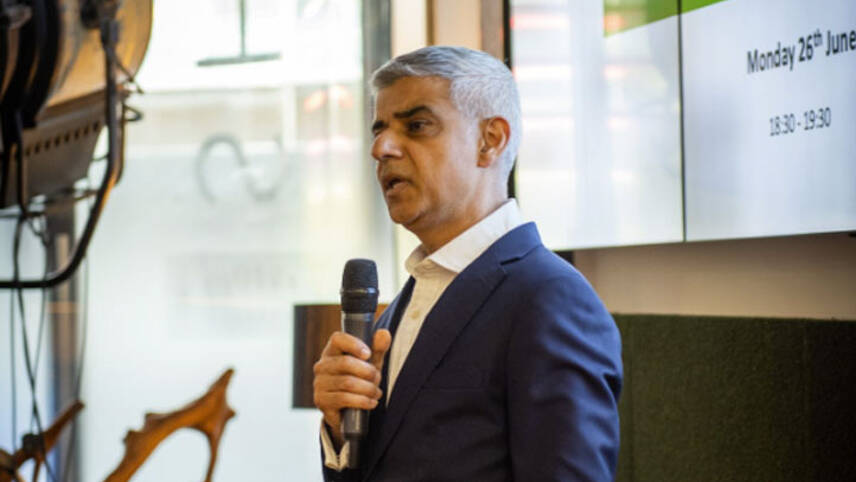Register for free and continue reading
Join our growing army of changemakers and get unlimited access to our premium content

Image: Goals House
The new ‘Breathe Cities’ initiative will have a $30m budget to begin with and is the result of collaboration between Bloomberg Philanthropies, the Clean Air Fund and C40 cities. Khan is notably chair of C40 Cities at present.
Unveiled at a Goals House event as part of London Climate Action Week, ‘Breathe Cities’ has been created in recognition of the fact that most cities across the world regularly exceed the recommended air pollution limits from the World Health Organisation (WHO). Four in ten cities regularly record air pollution levels over seven times these recommended limits.
To tackle this challenge, Bloomberg and Khan stated, cities need more funding to collect better air quality data, run community engagement schemes and invest in technologies and infrastructure that produces less pollution.
A group of cities set to benefit from funding under Breathe Cities will be announced later this year. They will be supported in installing better air quality sensors and technologies which can determine key causes of air pollution.
From there, they will be supported to research and implement policy interventions, and to mobilise local organisations in support of air quality action. Lessons learned in one city will be shared with others, to help them replicate successes and avoid challenges.
“Cities around the world are proving that, with the right technology and support, they can reduce air pollution, protect public health and fight climate change,” said Michael R. Bloomberg.
“Building on the effective work of London and others, our new Breathe Cities initiative brings together strong partners to help even more local leaders craft ambitious and equitable policies that can save and improve lives.”
To Bloomberg’s point, the WHO estimates that air pollution is a contributing factor in some seven million premature deaths each year. 4,000 of these people live in Greater London.
“Air pollution is the greatest environmental threat to human health,” added the head of the climate and clean air coalition at the UN, Martina Otto.
“We must tackle air pollution locally, regionally, and globally to combat this climate and health emergency. Breathe Cities has the potential to bring about health, development, and environmental benefits by removing barriers and actively working towards cleaner air.”
London focus
Khan said that, while implementing policies for clean air in his own city is important, it is also crucial to “work collaboratively across national borders and city boundaries” – including in the Global South.
London’s Ultra-Low Emissions Zone (ULEZ) is set to be expanded in August to cover all of Greater London. Drivers entering the ULEZ using a vehicle that does not comply with Euro 6 emissions requirements are charged £12.50 per day. There are exemptions for certain vehicles.
The expansion is proving unpopular, as residents of outer boroughs of London will be either forced to pay charges or upgrade their vehicles during the cost-of-living crisis. A recent survey of 2,001 motorists found that only 31% of London residents favour the ULEZ expansion and only 8% would be happy to pay the charge each day.
Khan said the cost of living had been a “key consideration” and that it had “not been an easy decision”. But he argued that, “in the end, public health comes before political expediency”. The ULEZ has, to date, resulted in a 44% reduction in roadside nitrogen dioxide (NO2) emissions.


Please login or Register to leave a comment.